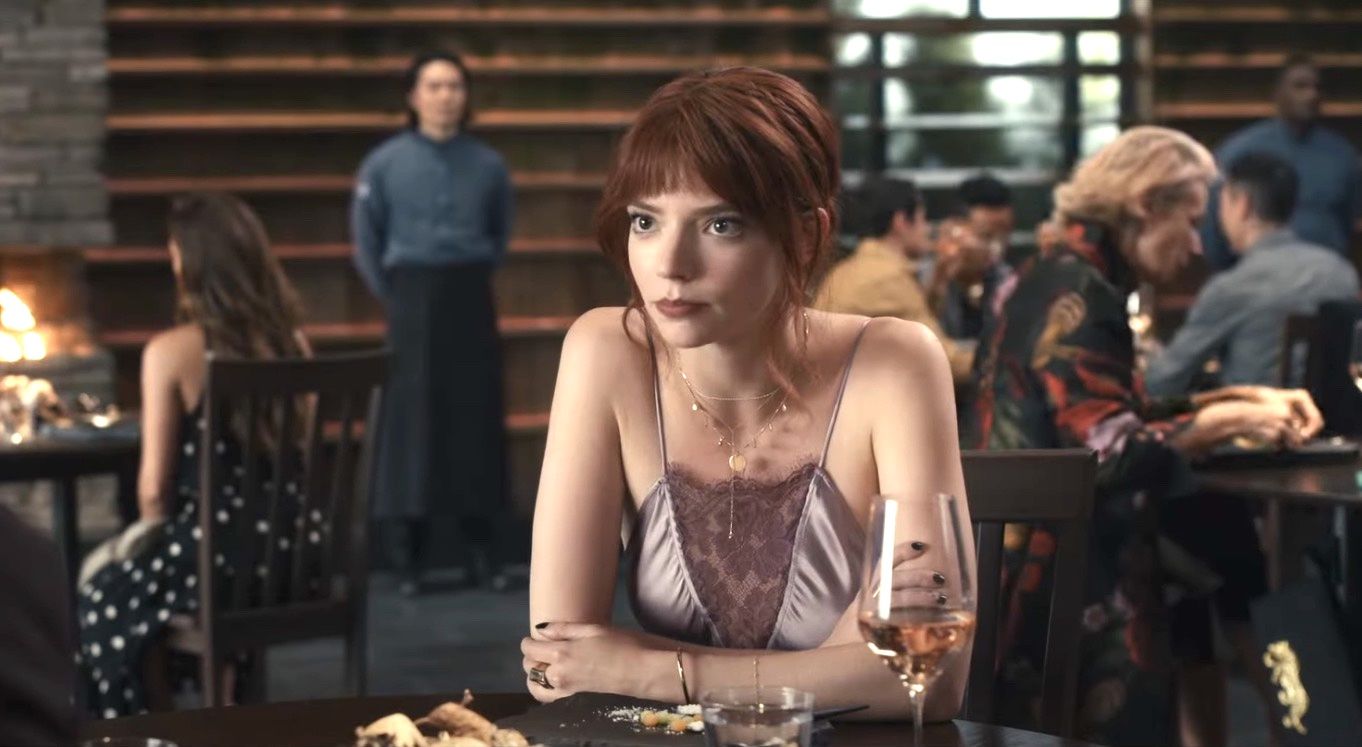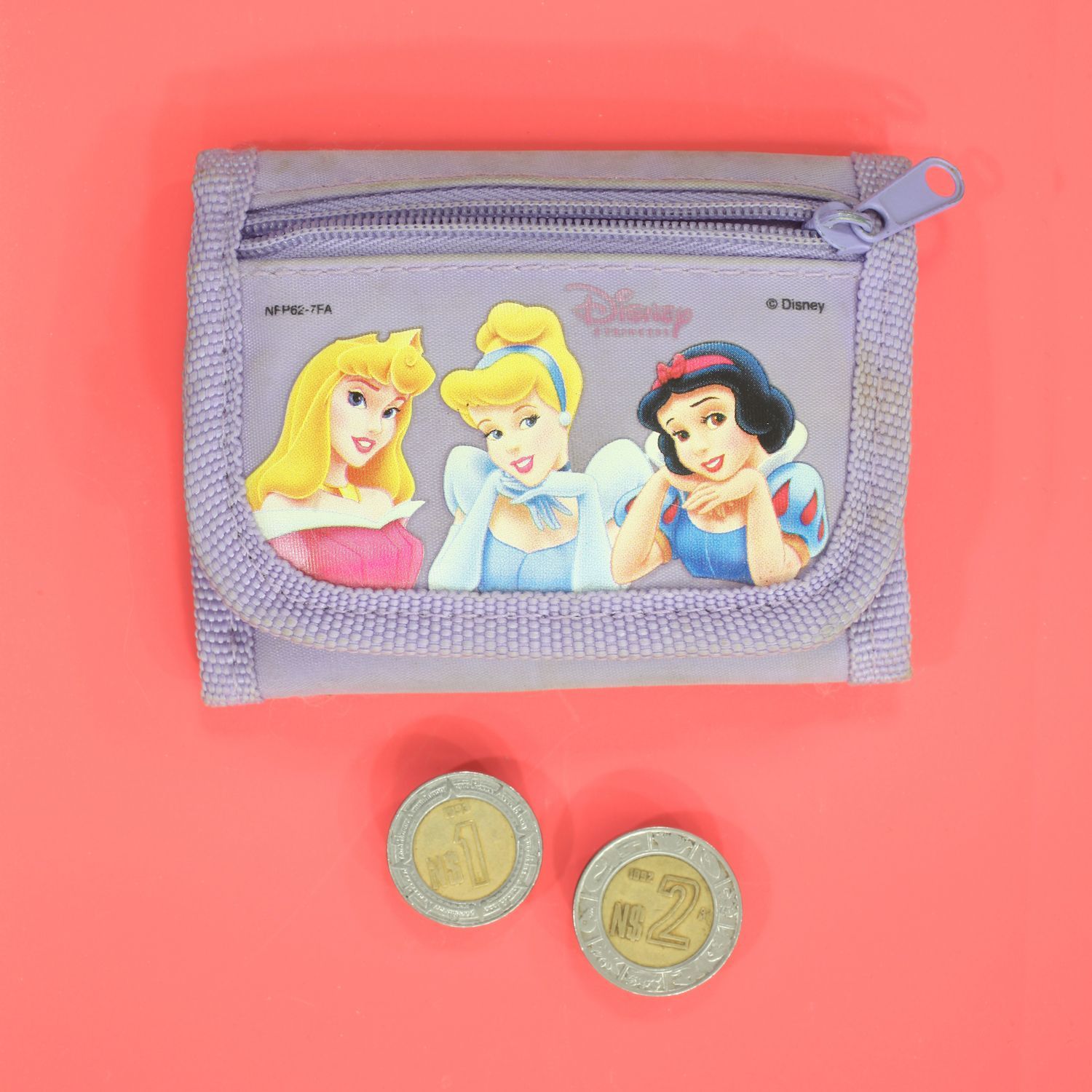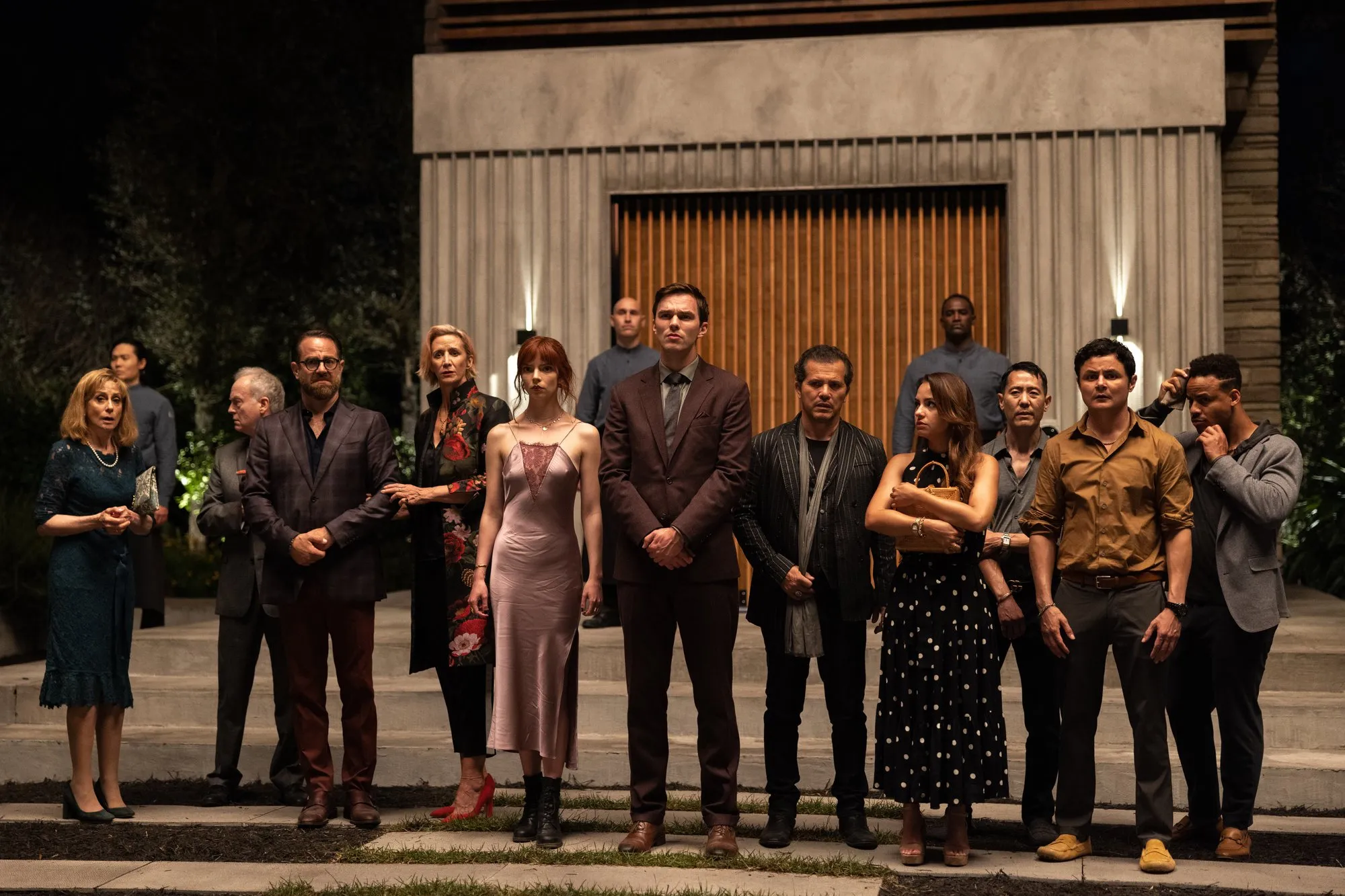You will get less than you desire and more than you deserve

Whenever I finish a film or TV series I immediately want to read as much about it as possible. That's true whether or not I loved it or I thought it fucking sucked. Sometimes trying to answer the question wait why did this fucking suck? is crucial. There are some films however where I go above and beyond and gorge myself on reviews and commentary. The Menu was one of those. The type of film that worms itself inside of me and I can't let go of it.
So after I was finished reading I wanted to talk about it some more. I called up Vince Mancini, the film and culture writer at Uproxx, who like me, also had The Menu on his best of the year list.
(Do not read this piece if you haven't seen the film yet. In fact I'd recommend watching it without knowing anything at all if you can.)
We talked, among other things, about how The Menu has, incorrectly in our estimation, been lumped in with an ostensible trend in facile Rich People Bad films and series, and how it does so much more than that. As he wrote in his review:
The Menu explores the limitations of for-profit art, which is neither a simplistic take nor a pandering one. It describes a dilemma artists have faced since at least the Renaissance, and the fact that it’s possible to enjoy The Menu for the razor-sharp joke writing and knockout performances (Hong Chau in particular), without “getting” it is a testament to its quality.
The Menu is not about “dunking on the rich.” That just happens to be one of the many things this great movie does well.
Find more from Vince, including his podcasts The Frotcast (which I appeared on a few years back), and Pod Yourself a Gun here.
Real quick before we get to The Menu, look at this fucking shocker.
No way.
— luke (@lukeoneil47) January 5, 2023
"A top Walgreens executive on Thursday acknowledged the company may have overblown concerns about thefts in their stores after shrinkage stabilized over the last year." https://t.co/5duZyX3Pbs
“Maybe we cried too much last year,” Walgreen CFO James Kehoe said. “We’re stabilized,” he added, saying the company is “quite happy with where we are.”
Do you mean to tell me all of those hundreds of articles and TV news segments about organized crime and shoplifting on the rise were actually reactionary bullshit meant to stifle any progress made by protestors of unchecked police spending and hamstring reformist DAs?
Here's another lie.
[Fleeing with my family for our lives for a thousand miles and seeing this] Oh ok https://t.co/MTPbebBE60
— luke (@lukeoneil47) January 7, 2023
That's not how it works.
People cross for myriad reasons, some for “opportunity,” some literally fleeing death or poverty, but how do we convince people of the most obvious thing in the world, which is that no one uproots their entire life to walk and walk and walk and maybe die to come here for this and giggles or to be a “lazy” “parasite”?
Would you do that?
Some further reading from previous Hell Worlds on the matter of crossing the border.

"I didn’t want to come over here. To go to another country. You know, you have to walk, cross the river, sleep over in the woods in the night...But you got two choices, go over there, or stay here and let’s see what happens to you. You die."

“We were drinking cologne by the second day in the desert,” Dora says. “That saved our life too, that spiced cologne.”

I've been seeing a lot of this take lately where people are conflating Succession and White Lotus and Glass Onion and The Menu and so on and just sort of reducing them to the theme of Rich People Bad. And then criticizing them, individually or as a grouping, as empty gestures under those terms. I liked most of those others more or less, but in no way is The Menu saying Rich People Bad. That’s maybe a small piece of what this movie is saying.
I would agree with that. I mean, it definitely points out that rich people tend to be assholes. And gives us a lot of different flavors of rich asshole. But it's clearly exploring a lot more. It's not just saying Rich People Bad. I feel like people keep reducing it to that, or wanting these things to be that, which is weird.
There's also this idea that they aren't, what, sufficiently revolutionary? Who was expecting these big Hollywood productions to be actually subversive and dangerous, right?
Yeah. We've been doing this for a while now, where there's this weird expectation for art to moralize, or to be didactic in that way. I kind of think that part of it is they need more examples for a trend piece, because I think there are things that Glass Onion does that are annoying. Like the climax when Benoit Blanc is explaining the plot – which is the trope of all these mysteries, where the inspector fucking lays out the plot towards the end – he does go overboard and beyond to point out that the main Elon Musk guy is stupid. He just keeps saying it over and over, making a joke out of it. And it's kind of like, did we need that? That was all sort of in there. He’s trying to hit you over the head with it. I wonder if part of all this is that people are annoyed by that type of thing, and they're trying to unfairly lump The Menu in with that to make, you know, like a three movie trend piece or whatever.
Right. I thought Glass Onion was fun. I didn't think it was really trying to say too much. The other pieces we’re talking about here, to different extents, are actually saying things. I think. I like the fact that Succession and White Lotus both play with the idea that money doesn't buy you happiness. It's an obvious point, but I think that that's still a very rich vein to be explored in numerous different ways.
With Succession in particular, the reason that these people are so watchable and compelling is that their problems are actually very human problems that are not made better, and are in fact in many ways made worse, by their wealth.
Succession is great because it's very much about the nepotism problem. Like when the first generation gets rich because they're hungry and striving, and then they have kids that are comfortable. And then the comfortable kids are expected to run the thing the same way that their striving parents did, which is interesting. It's like a super old idea going back to like, the fucking Mongols or whatever.
Again, the idea is not like, oh, this is about rich people being bad. It’s exploring the mechanics of how that happens.
Class conscious film and TV nowadays is too on the nose. https://t.co/cBmNcLzsab
— luke (@lukeoneil47) January 7, 2023
As much as I'm going to talk about how much I liked The Menu, there is of course definitely space for more subtle explorations of this tension between server and servants, figurative and literal. Plenty of films have done that very well or even much better. But with this movie… This is pretty rare for me to do like a single movie-focused Hell World. I’ve been thinking about this one for a few days in the same way I think about some of the movies that really get inside of me.
Where do you think Parasite sits atop of all of this? Was that the movie to reignite the idea of focusing on class conflict in this current iteration we’re seeing now?
